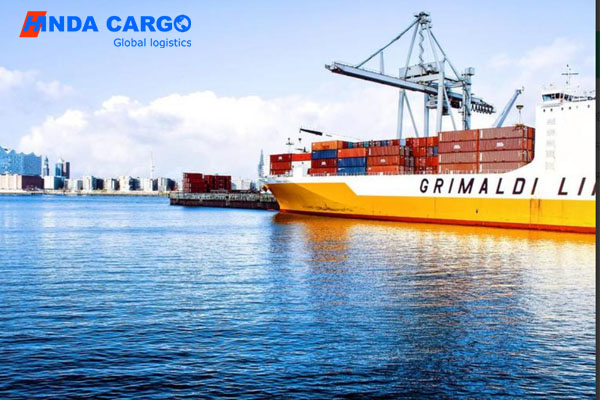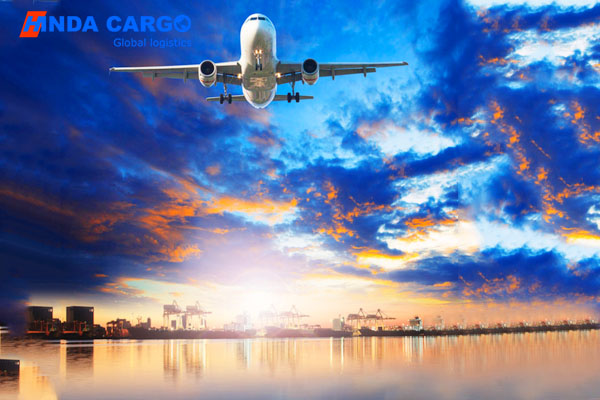What is the difference between logistics and freight?
In modern business operations, logistics and freight are two closely related concepts with different responsibilities. Understanding the difference between them is essential for effectively managing the supply chain and freight transportation. This article will explore the difference between logistics and freight and their role in business operations.

What is the difference between logistics and freight?
Logistics management is an important part of the supply chain, involving the management of the entire process from raw material procurement to final product delivery. It includes logistics planning, procurement, production, warehousing, transportation and distribution, aiming to achieve the optimal allocation of resources and minimize logistics costs. Freight is a part of logistics management, which is mainly responsible for transporting goods from one location to another, including land, sea, air and other modes of transportation. Logistics management emphasizes the coordination and optimization of the entire supply chain, while freight focuses on the actual transportation process of goods. Therefore, it can be said that logistics management is a broader concept of freight, covering all aspects and management activities beyond freight.
Logistics and freight are two related concepts with different responsibilities:
1. Logistics management: Logistics management covers all aspects of the supply chain, from raw material procurement to the final delivery of products to customers. It includes the process of planning, executing, controlling and supervising the flow of goods to ensure the efficiency and smoothness of logistics activities. Logistics management involves inventory management, transportation, warehousing, packaging, distribution and other aspects.
2. Freight: Freight is an important part of logistics management, mainly referring to the process of transporting goods from one location to another. Freight can be carried out in various ways, including road transport, rail transport, sea transport, air transport, etc. Freight forwarders are responsible for organizing and managing the transportation process of goods to ensure that the goods can reach their destination safely and on time.

What is the role of logistics and freight in business?
Logistics and freight play a vital role in business:
1. Supply chain management: Logistics management is responsible for managing all aspects of the supply chain to ensure that the supply chain operates efficiently, so that products can be delivered to customers in a timely and accurate manner.
2. Cost control: The effective management of logistics and freight helps to control the operating costs of the enterprise. By optimizing the logistics process and choosing the right freight method, the enterprise can reduce various expenses such as inventory costs and transportation costs.
3. Customer satisfaction: Logistics and freight directly affect customer satisfaction. Timely and safe delivery of goods can improve customer satisfaction and loyalty and promote long-term development of the enterprise.
4. Market competitiveness: By establishing an efficient logistics system and freight network, enterprises can improve their market competitiveness. Responding to market demand quickly and flexibly and adjusting supply chain and logistics strategies in a timely manner can help enterprises to remain invincible in the fiercely competitive market.
How to optimize logistics and freight?
To optimize logistics and freight, the following measures can be taken:
1. Technology application: Use information technology and logistics management software to optimize logistics processes and improve transportation efficiency and accuracy.
2. Supply chain cooperation: Establish close cooperation with suppliers, carriers and warehousing service providers to optimize all links of the supply chain and achieve resource sharing and collaborative operations.
3. Transportation mode selection: Select appropriate transportation modes according to factors such as cargo characteristics, transportation distance and time limit, including road transportation, rail transportation, sea transportation and air transportation.
4. Inventory management: Reduce inventory costs and reduce inventory backlogs through reasonable inventory management measures such as Just-In-Time and supply chain management technology.
5. Continuous improvement: Regularly evaluate and optimize logistics and freight processes, and continuously improve and innovate to adapt to market changes and changing customer needs.
Summary
Logistics and freight play an indispensable role in modern business operations. They are closely related, but have different responsibilities and functions. By effectively managing and optimizing logistics and freight, enterprises can improve operational efficiency, reduce costs, and increase customer satisfaction, thereby gaining greater advantages in market competition.




